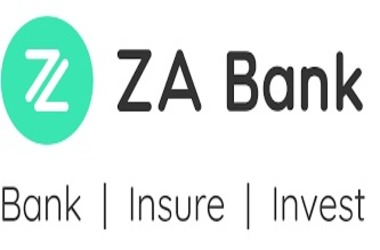
Embracing Web3 Companies:
ZA Bank reports that it serves between 60 to 70 companies operating within the Web3 sphere, a concept encompassing various facets of the digital economy. Impressively, a substantial number of these firms, ranging from 20 to 30, are actively seeking licenses to operate as cryptocurrency trading platforms. According to ZA Alternate CEO Devon Sin, the bank believes in the growth potential of Web3 and perceives it as an engine for future development.
Web3’s Expanding Influence:
ZA Bank’s client base extends to established entities in Hong Kong’s Web3 landscape, including the city’s two locally licensed exchanges, HashKey Exchange and OSL. Furthermore, venture capital firms and asset managers dedicated to Web3 investments are in the process of establishing relationships with the bank. ZA Bank, with 700,000 clients across Hong Kong and neighboring Guangdong province, stands confident in the prospects of Hong Kong’s Web3 ecosystem.
Overcoming Banking Hurdles:
For many companies in the Web3 sector, obtaining a bank account has been a significant challenge. Recognizing this issue, the Hong Kong Monetary Authority (HKMA) has facilitated meetings between Web3 firms and traditional banks, brokerages, and industry groups this year. HKMA has also provided contact information for 15 major banks to assist Web3 companies in accessing banking services.
Regulatory Balance and Challenges:
While Hong Kong seeks to attract crypto-related businesses, it also aims to maintain regulatory rigor. Recent arrests related to suspected fraud at a trading platform serve as a reminder of the need for vigilance. Notably, a ZA Bank spokesperson clarified that the platform in question, JPEX, is not a client of the bank.
Equal Treatment for Web3:
ZA Bank ensures equitable treatment for Web3 companies in account openings, without specific insurance coverage or additional personnel dedicated to the sector. The bank streamlines the process, enabling Web3 entities to establish accounts within a matter of weeks.
Future Plans:
ZA Bank has aspirations to offer cryptocurrency trading services directly to its banking clients in the future. However, the realization of this goal hinges on regulatory developments. CEO Ronald Iu expressed interest in providing such services for retail clients but refrained from providing specific revenue goals for the Web3 banking sector.
Balancing Diversification:
Iu, formerly the bank’s chief risk officer, emphasizes the importance of diversification to mitigate concentration risk. Drawing lessons from the collapse of crypto-friendly Silicon Valley Bank in the U.S., Iu advocates against over-reliance on any single sector. He assumed the role of CEO in March 2023, succeeding former CEO Rockson Hsu.
Virtual Banking Landscape:
ZA Bank is among Hong Kong’s eight “virtual banks,” backed by prominent Chinese conglomerates like Ant Group, Tencent, Xiaomi, Ping An Insurance, and Bank of China. Despite operating in a market dominated by traditional giants like HSBC and Standard Chartered, virtual banks like ZA Bank continue to navigate the evolving financial landscape.
Conclusion:
ZA Bank’s proactive approach to serving Web3 clients aligns with Hong Kong’s vision of becoming a prominent hub for cryptocurrency and blockchain activities. By embracing this emerging sector and facilitating banking services, ZA Bank contributes to the diversification of Hong Kong’s financial landscape, while remaining mindful of the importance of regulatory compliance and risk mitigation.
